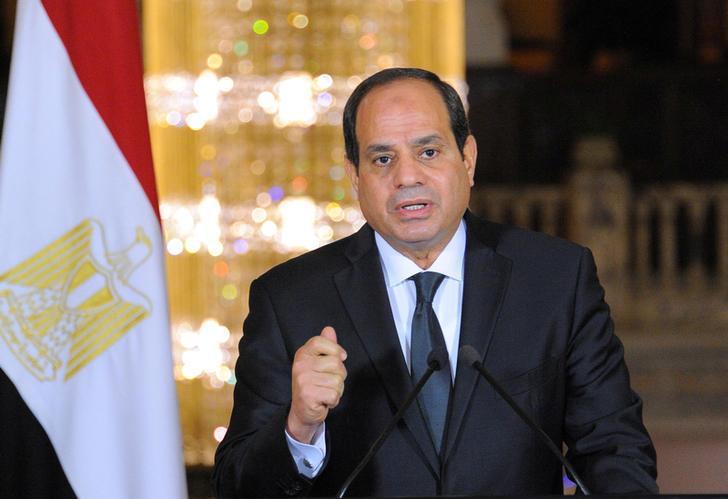
Feb 19, 2021 | News
The Egyptian authorities’ targeting of families in Egypt of activists and human rights defenders living abroad has been escalating, demonstrating a clear pattern of intimidation and harassment, 22 Egyptian, regional, and international organizations said today.
Since August 2020, the authorities have targeted the families of four critics who live in the United States, as well as one in Turkey, one in Germany, and one in the United Kingdom.
These cases are among dozens reported in recent years. The authorities try to intimidate critics with unlawful home raids, arbitrary arrests, enforced disappearances, and prolonged detention of family members without trial or charges.
“The Egyptian families of dissidents abroad have been increasingly caught in President al-Sisi’s government web of oppression,” said Joe Stork, deputy Middle East and North Africa director at Human Rights Watch. “President al-Sisi should immediately rein in his security forces and end these hostage-like arrests.”
On February 13, 2021, the authorities raided the homes of six members of the extended family of Mohamed Soltan, a US-based human rights advocate. Soltan, the director of the Freedom Initiative, an independent human rights group, and two other sources with direct knowledge of the arrests told Human Rights Watch that security agents arrested two of his cousins, Mostafa Soltan and Khairi Soltan, at their homes in the Menoufiya governorate. The two sources also said security authorities arrested a third relative of Soltan’s, Mahmoud Yousri al-Naggar.
Officers told another cousin to turn himself in once a cast on his broken leg was removed. Three of Soltan’s other cousins whom officers wanted to arrest were not at home during the raids; their families were told that the cousins were wanted by the National Security Agency. Those detained were interrogated mainly about Mohamed Soltan and his activities. On the evening of February 17, authorities released Mostafa and Khairi, following their detention and interrogation by National Security officers, the two sources said.
Security agents had previously arrested five of the six targeted cousins in June 2020 and detained them without trial until shortly before Joe Biden won the US presidential election in November. Soltan has been a prominent target of Egyptian government and pro-government media defamation campaigns because of his human rights work, most recently because of his organization’s support for the establishment of the Egypt Human Rights Caucus in the US House of Representatives.
The authorities disappeared Soltan’s already-jailed father, Salah Soltan, on June 15, 2020, when officers escorted him from Wadi al-Natrun prison to an unknown destination. Since that time, the authorities have refused to provide his family and lawyers information about his whereabouts. Soltan said that Egyptian intelligence agents in Washington, DC have harassed him with “bump-ins” at the local mall, at a Freedom Initiative’s Egypt advocacy event, which Human Rights Watch and the Project on Middle East Democracy co-sponsored in March 2019, and with threatening phone calls, telling him that he should “be careful” for his father’s sake. Soltan said he reported all incidents to the US authorities and his lawyers immediately.
Aly Hussein Mahdy, a University of Illinois at Chicago graduate student and video blogger with over 400,000 followers on Facebook, was ridiculed by a pro-government TV outlet on January 17. Between January 28 and February 2, National Security officers raided the homes of several of his family members in Alexandria and arrested his father, uncle, and cousin because of his videos, Mahdy told Human Rights Watch.
“They raided the home at dawn,” Mahdy said in a Facebook video on February 11. “They took my father from his wife and my younger siblings, terrifying them. They messed up the whole house and stole everything they found.” He told Human Rights Watch that his family has not been able to learn the whereabouts of the three family members arrested.
Download
Egypt-Arrests-Joint-Press-Release-2021-ENG (full statement in English)
Egypt-Arrests-Joint-Press-Release-2021-ARA (full statement in Arabic)
Contact
Asser Khattab, Research and Communications’ Officer, ICJ Middle East and North Africa Programme, e: asser.khattab(a)icj.org
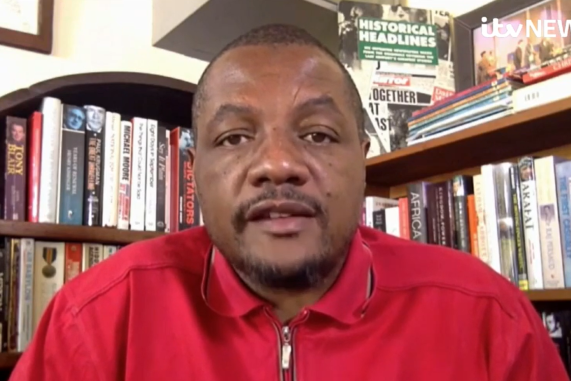
Jan 18, 2021 | News
The ICJ today condemned the arbitrary arrests in recent days of prominent Zimbabwean human rights defenders Hopewell Chin’ono, Fadzayi Mahere and Job Sikhala, who have been critical of the government led by President Emmerson Mnangagwa.
The ICJ is concerned that their arrests and potential prosecutions are based solely on their exercise of protected human rights, including freedom of expression. The ICJ calls for their immediate release and the dropping of the charges against them.
The three have been charged with contravening section 31 of the Criminal Code which prohibits “publishing or communicating false statements prejudicial to the state”.
The alleged offences arise from posts made on social media and comments issued by all three in connection with an incident at a Harare taxi rank in which a police officer is alleged to have assaulted a mother with a baby on her back.
ICJ’s Africa Director Kaajal Ramjathan-Keogh said:
“The use of judicial processes to silence these three human rights defenders constitutes a continuing assault on members of the bar and journalists and is a clear attempt to chill others from carrying out their professional functions when these activities offend government authorities. Of concern is the continued use of criminal defamation (section 31) charges which were declared unconstitutional in 2014 yet continues to be weaponised against human rights defenders.”
Chin’ono, a journalist, was arrested on 8 January and had his application for bail rejected on 14 January. He has been handcuffed and held in leg irons during court appearances, despite a Magistrate’s ruling on 12 January that forcing Chin’ono to be shackled in leg irons and handcuffing him amounts to inhumane and degrading treatment.
Mahere is a lawyer and spokesperson of the opposition political party Movement for Democratic Change (MDC) Alliance. She was arrested on 11 January. On 15 January Magistrate Trynos Utahwashe failed to hand down his ruling on her application for bail as required.
Bail was however granted today. Mahere did raise concerns about the absence of essential COVID-19 measures in her detention, including the lack of temperature checks or sanitisers at the entrance to the police station; the failure to practice social distancing in the waiting area or holding cells; the unavailability of masks in the cells and use of old masks by cellmates; as well as the failure to provide sanitary materials to female inmates.
Sikhala is a human rights lawyer, the MDC Alliance Vice National Chairperson, and MP for Zengeza West.
He was part of Chin’ono’s legal team. On 15 January Magistrate Ngoni Nduna dismissed his bail application stating that there was overwhelming evidence against him not to grant it. He remains in prison custody while he awaits trial. Sikhala has also been handcuffed and held in leg irons during court appearances.
Ramjathan-Keogh added:
“The courts have unlawfully employed the denial of bail as well as the repeated prolonged bail proceedings as a punitive tool in these cases. Pre-trial detention without the opportunity for bail, with exceptions not applicable here, is a violation of the right to liberty. The government has an obligation to provide safe and humane conditions of detention.”
The ICJ recalls that that Zimbabwe’s Constitution guarantees the rights to freedom of expression and freedom of the media (Article 61); freedom from arbitrary detention (Article 50). Zimbabwe has an international legal obligation to protect these rights under the International Covenant on Civil and Political Rights (Article 9 and 19) and the African Charter on Human and Peoples’ Rights (Articles 6 and 9).
Contact:
Kaajal Ramjathan-Keogh, Director of ICJ Africa Programme, e: Kaajal.Keogh(a)icj.org ; t: +27845148039
Tanveer Jeewa, Legal and Communications Consultant, e: Tanveer.Jeewa(a)icj.org
Background Information:
Hopewell Chin’ono has been arrested on three separate occasions. He has been denied bail on each occasion and those bail proceedings have been unduly and unfairly prolonged. He was initially arrested in July 2020 after he expressed support on Twitter for an anti-corruption protest, which was planned for 31 July. He was charged with incitement to participate in public violence and breaching anti-corona virus health regulations.
He appeared in court three times to apply for bail and was only granted bail in September 2020, nearly two months after his arrest. On 3 November 2020, he was re-arrested for contempt of court for allegedly violating section 182(1)(a) or (b) of the Criminal Code because of a tweet he posted. His tweet stated: “On day of bail hearing CJ was seen leaving court in light of what has been said by judges what does this say.” The arrest violates Zimbabwe’s constitutional provisions, in particular, section 61, which provides for freedom of expression and the right of a journalist to practice his profession. He was again arrested on 8 January 2021 for allegedly communicating falsehoods by tweeting that police beat a baby to death.
Chin’ono was in 2020 denied access to the legal representative of his choice. The magistrate’s order barring lawyer Beatrice Mtetwa from continuing as defence legal counsel for Chin’ono violated his right to a fair trial and Mtetwa’s right to express her opinions freely. See ICJ’s statement of 21 August 2020.
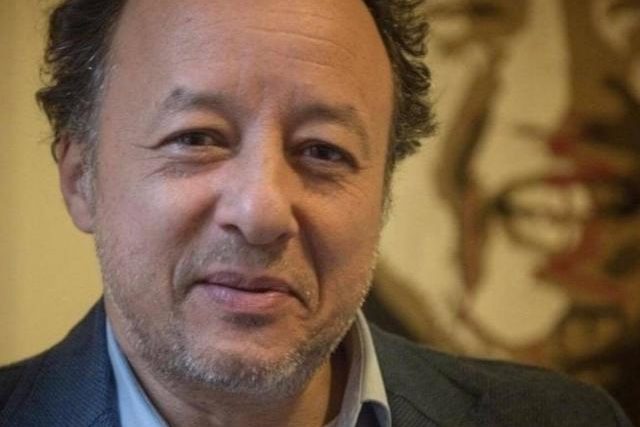
Nov 20, 2020 | News
The ICJ today called on the Egyptian authorities to immediately and unconditionally release human rights defenders Gasser Abdel-Razek, Mohamed Bashseer and Karim Ennarah.
The detainees, senior staffers of the Egyptian Initiative for Personal Rights (EIPR), a leading human rights organization, were targeted in connection with their human rights work.
The arrests are part of a broader, relentless campaign by the military and government to intimidate and silence civil society organizations, including through such means as trumped-up “terrorism” charges and sham judicial proceedings.
“By arresting Mohamed Bashseer, Karim Ennarah and Gasser Abdel-Razek, and charging them with terrorism-related offences, the Egyptian government led by President Al-Sisi are writing a new, terrifying chapter in their repression playbook,” said Said Benarbia, Director of ICJ’s Middle East and North Africa Programme.
“Their crackdown on independent civil society must end.”
On 19 November 2020, Gasser Abdel-Razek, EIPR’s Executive Director, was arrested by security forces from his home in Maadi, Cairo. He appeared before the Supreme State Security Prosecution (SSSP) and charged in case No. 855/2020 with, among other charges, “joining a terrorist group” and “spreading false news.”
On 15 November 2020, EIPR’s Administrative Manager Mohamed Bashseer, was arrested at his house in Cairo. On 17 November 2020, Karim Ennarah, EIPR’s director of the criminal justice programme, was also arrested.
They both face similar charges in the same case No. 855/2020, together with other numerous lawyers and human rights defenders, including Mohamed El-Baqer and Mahienour al-Massry.
Over the past seven years, EIPR has been subjected to a pattern of harassment and persecution by the military and government.
In 2016, the assets of EIPR’s founder and former executive director, Hossam Bahgat, were frozen and he was subjected to a travel ban since then.
On February 2020, Patrick George Zaki, an EIPR researcher, was arrested at Cairo Airport by National Security Agency officers who reportedly subjected him to torture, including with electric shocks. He was charged by a public prosecutor with, among other charges, “spreading false news” and “inciting protest without authorization”. He remains in custody
The recent arrests of the three senior EIPR officials follow a visit by a number of European ambassadors and other diplomats to the EIPR Cairo offices on 3 November 2020, during which the human rights situation in Egypt was discussed.
“The international community and in particular States engaging in political and security cooperation with Al-Sisi’s regime must not overlook the serious violations against human rights defenders taking place in the country,” added Benarbia.
“They should demand an end to these violations and ensure that individuals and independent human rights groups are able to do their legitimate and critical human rights work freely and without intimidation.”
Contact
Said Benarbia, Director, ICJ Middle East and North Africa Programme, t: +41-22-979-3817; e: said.benarbia(a)icj.org
Download the Arabic version
Egypt-EIPR crackdown-News-2020-ARA
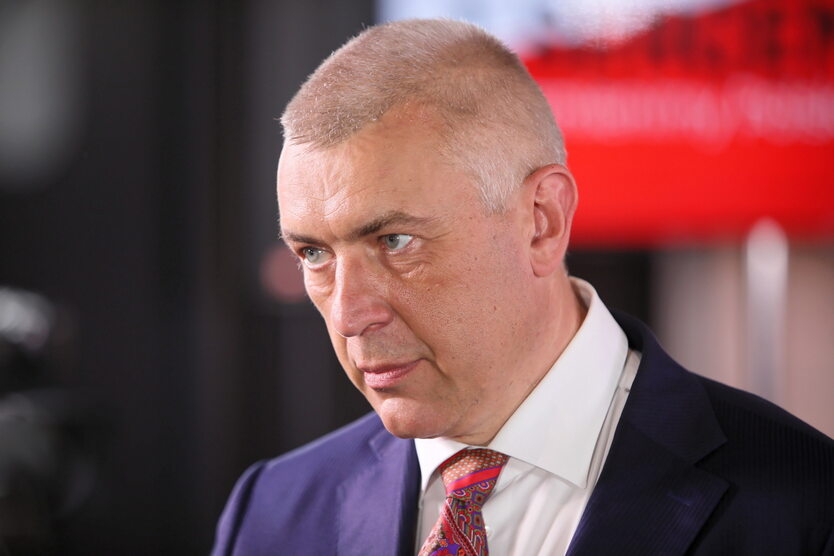
Nov 16, 2020 | Advocacy
On 15 October 2020, Polish lawyer Roman Giertych was detained by the Central Anticorruption Bureau (CBA) on accusations of money laundering. His house and office were searched and prosecutors imposed preventive measures, including suspension of his right to practice law.
Lawyers for Lawyers, the ICJ and the Amsterdam Bar Association are concerned that the manner in which these measures were taken is inconsistent with international standards on the independence of the legal profession.
Roman Giertych has worked on a series of high-profile cases against the governing Law and Justice party. He has also represented various prominent opposition figures, including Donald Tusk, the former Polish prime minister and head of the Civic Platform opposition party, and former president of the European Council.
Mr. Giertych’s arrest happened one day before the scheduled detention hearing in another politically significant high-profile case, concerning Leszek Czarnecki, in which Roman Giertych was appointed as defence counsel.
According to the information available to Lawyers for Lawyers (L4L), the ICJ and the Amsterdam Bar Association, Mr. Giertych was arrested merely to serve him with charges. He was not given a chance to appear voluntarily.
On 22 October 2020, Mr Giertych’s defense lawyers filed four complaints with the court about the actions of the Poznań prosecutor’s office relating to his arrest and the search of his home and office.
Professional lawyers’ associations such as the National Council of Attorneys-at Law, the Association of Attorneys-At-Law “Defensor Iurius”, the Polish Bar Council and the Council of the Warsaw Bar Association of Advocates have expressed “great concern” about Mr. Giertych’s detention, the search of his house and office, and the preventive measures that were taken against Mr. Giertych.
Lawyers for Lawyers, the ICJ and the Amsterdam Bar Association are concerned about the circumstances of Mr. Giertych’s arrest, in particular the fact that the arrest seems to have only been made in order to present him with charges.
L4L, ICJ and the Amsterdam Bar Association are also concerned by the fact that the searches of his house and office were conducted without proper safeguards of attorney-client privilege and by the suspension of Mr. Giertych’s right to practice his legal profession by a public prosecutor. We will continue to monitor the case of Mr. Giertych closely.
Download
Poland-Roman Giertych-Advocacy-2020-ENG (full statement with additional information, in PDF)
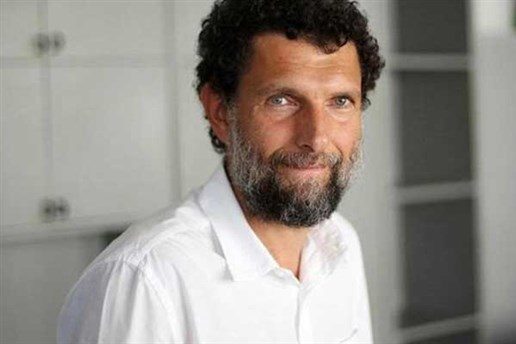
Oct 26, 2020 | News
A new bogus indictment against human rights defender and businessman, Osman Kavala, and US academic, Henri Barkey, for allegedly spying and attempting to overthrow Turkey’s constitutional order is politically motivated and bereft of legal credibility, Human Rights Watch and the ICJ said today.
The indictment, alleging the two were involved in the July 15, 2016, attempted military coup, demonstrates Turkey’s blatant refusal to abide by a European Court of Human Rights judgment, finalized in May 2020, which ordered Kavala’s release, and not only prolongs ongoing violations of his rights but gives rise to new ones.
An Istanbul court on October 8 accepted the indictment and has scheduled a first trial hearing against Kavala, who was been in Istanbul’s Silivri Prison since November 2017, and Barkey, who lives in the US, for December 18.
“The new case against Osman Kavala and Henri Barkey demonstrates the Turkish authorities’ flagrant misuse of the courts for political ends and their fundamental disregard for the basic principles of criminal justice,” said Hugh Williamson, Europe and Central Asia director at Human Rights Watch.
“Defying the European Court of Human Rights order to release Kavala has confirmed the Court’s conclusion that Turkey is using detention and prosecution to silence a human rights defender.”
The 64-page prosecutor’s indictment, dated September 28, accuses Kavala and Barkey of “securing for purposes of political or military espionage information that should be kept confidential for reasons relating to the security or domestic or foreign policy interests of the state” (under Turkish Penal Code article 328), punishable with up to 20 years in prison, and “attempting through force and violence to overthrow the constitutional order of the Republic of Turkey or introduce a different order or prevent this order” (article 309), punishable with life in prison without parole.
The indictment recycles unsubstantiated accusations, which previously circulated in the pro-government Turkish media, that Kavala and Barkey were involved in espionage and in the 2016 attempted military coup. The indictment provides no credible evidence linking them with any criminal activities. (Further details about the content of the indictment are provided below.)
In a December 2019 judgment, which became final on May 11, the European Court of Human Rights ruled that the evidence on which Kavala was detained for the Gezi protests and the 2016 coup attempt was insufficient and agreed that Kavala’s detention and the charges against him “pursued an ulterior purpose, namely to silence him as a human rights defender.”
On September 3, the Council of Europe Committee of Ministers, acting in its supervisory capacity for the implementation of European Court judgments, issued a decision ordering the Turkish government to ensure Kavala’s release, pointing to “a strong presumption that his current detention is a continuation of the violations found by the Court.”
On September 29, pro-government media reported that the Istanbul prosecutor’s office had prepared the new indictment against Kavala and Barkey. On the same day, Turkey’s Constitutional Court postponed its review of Kavala’s application regarding the legality of his continuing detention, which had been scheduled for that day.
On October 1, the Council of Europe Committee of Ministers issued a second decision calling on Turkey to ensure Kavala’s immediate release, expressing “deep concern that the applicant has still not been released” and announcing that an interim resolution would be issued at the Committee of Ministers’ December 1-3 session if Kavala had not yet been released.
“Turkey is bound by the ruling from European Court to free Kavala immediately, and the ruling covers his detention under the latest case against him,” said Roisin Pillay, director of the ICJ Europe and Central Asia Programme.
“The new indictment presents no new grounds to justify his detention, and it is imperative that Turkey ends the persecution campaign against him by releasing him and dropping all charges.”
For more Human Rights Watch reporting on Turkey, please visit:
http://www.hrw.org/europecentral-asia/turkey
For more ICJ work on Turkey, please visit:
https://www.icj.org/search/?fwp_search=Turkey&submit=Search
Contact
Massimo Frigo, Senior Legal Adviser, ICJ Europe and Central Asia Programme, t: +41-22-979-3800; e: massimo.frigo(a)icj.org
Turkey-Kavala case-News-press release-2020-ENG (story with additional information, in PDF)









